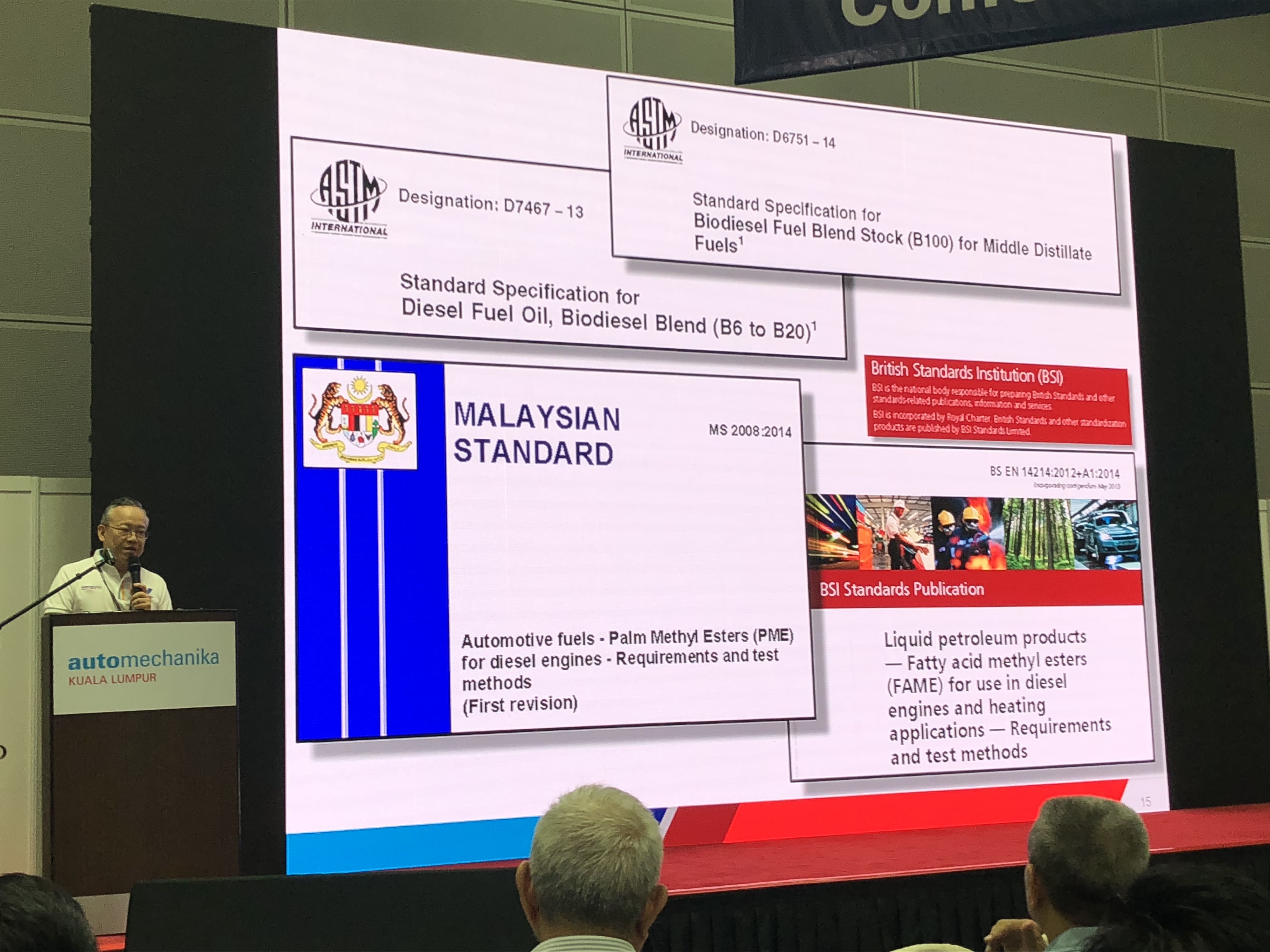
One such speaker was Mr Foo Siew Mun, Southeast Asian OEM Technology Manager at Valvoline Ptd Ltd. Foo spoke on the topic ‘The Pros & Cons of Biodiesel & Achieving 20 000KM Oil Change with B20 Biodiesel’. To put things into perspective, Valvoline is a leading worldwide marketer and supplier of premium branded lubricants and automotive services with sales in more than 140 countries. Established in 1866, the company’s heritage spans more than 150 years during which it has developed powerful brand recognition across multiple product and service channels.
According to Wikipedia, biodiesel refers to a vegetable-oil or animal-fat based diesel fuel consisting of a long chain alkyl esters. Biodiesel is typically made by chemically reacting lipids (e.g. vegetable oil, soybean oil etc) with an alcohol producing fatty acid ester. Biodiesel is meant to be used in standard diesel engines and thus distinct from the vegetable and waste oils used to fuel converted diesel engines. Biodiesel can be used alone or blended with petro diesel in any proportions.
The European Union is the greatest producer of Biodiesel with France and Germany being the top producers. To increase the use of biodiesel, there are policies requiring the blending of biodiesel into fuels, including penalties if those rates are not reached. Earlier this year, the French government lifted the minimum mandatory proportion of biofuels blended to 7.9 percent in 2019 and 8.2 percent in 2020. As an incentive for European Union Countries to continue the production of biofuel, there are tax rebates for specific quotas of biofuel produced.
























